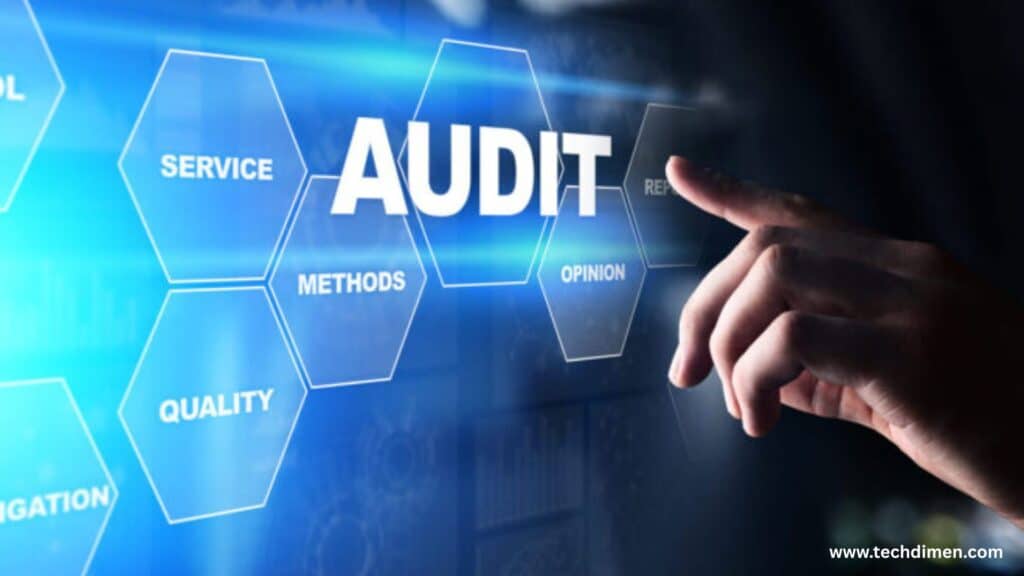In today’s digital-first world, information technology audit services are no longer optional. They’re essential. As businesses become increasingly reliant on complex IT systems, the risks from cyberattacks to data breaches to compliance failures grow exponentially. That’s why, in 2025, IT audits play a critical role in helping organizations stay protected, efficient, and compliant.
Why IT Audits Matter More Than Ever in 2025

With artificial intelligence, cloud computing, and remote work dominating business infrastructure, companies face unprecedented security and compliance challenges. Cyber threats have grown more sophisticated, data privacy regulations are tightening globally, and digital operations are expanding faster than many organizations can manage securely.
In this environment, IT audits offer a proactive solution. They help organizations evaluate how well their systems safeguard data, support business objectives, and comply with laws and regulations. More importantly, they uncover hidden vulnerabilities before bad actors can exploit them.
What Are Information Technology Audit Services?
An IT audit is a comprehensive assessment of an organization’s technology infrastructure, security practices, and IT management controls. It’s not just about checking boxes for compliance. It’s about examining whether your systems are secure, efficient, and aligned with your business goals.
IT auditing services are designed to uncover risks, ensure legal compliance, evaluate system performance, and verify data integrity. Whether you’re concerned about protecting customer data or streamlining your internal IT operations, these audits provide the insights needed to improve.
Core Areas Covered in IT Audits

One of the most important parts of an IT audit is cybersecurity. In this phase, auditors identify vulnerabilities in your systems, review access controls, and analyze network defenses. This includes vulnerability assessments using specialized tools such as Nessus or Qualys, which scan for weak points that attackers might exploit.
Network security is another critical area. Auditors examine how your network is structured and protected. They review firewall settings, intrusion detection systems, and endpoint protections to ensure your data is well-defended from both external and internal threats.
With cloud computing now a standard, cloud security audits have become increasingly vital. These audits focus on how well your cloud providers are protecting your data, how access is managed across distributed teams, and whether your organization’s practices align with standards like ISO 27001.
Compliance is also a central pillar of IT audit services. Depending on your industry, you may need to meet regulations such as HIPAA (for healthcare data), SOX (for financial reporting controls), or PCI DSS (for payment card information). IT audits assess whether your policies, systems, and staff are adhering to these strict guidelines.
The IT Audit Process from Start to Finish
The IT audit process typically begins with planning. This is where the audit team defines the goals, scope, and approach. They identify key systems to evaluate and determine what risks or compliance concerns are most critical.
Next comes the fieldwork phase. During this stage, auditors gather data, interview staff, examine system logs, and run tests. They’re looking for gaps in security, inefficiencies in IT operations, and any signs that your systems might be exposed or non-compliant.
After fieldwork, the auditors compile a detailed report. This includes an overview of findings, a risk assessment, and specific recommendations for improvement. Often, this report serves as a roadmap for the IT team to strengthen security, update policies, or make strategic technology decisions.
Finally, a good IT audit includes a follow-up phase. Auditors check to see whether recommended changes have been implemented effectively and whether they’ve resolved the issues identified in the original assessment.
The Real-World Value of Regular IT Audits
Regular IT audits offer tangible benefits for organizations. First and foremost, they improve your security posture. By identifying risks early, you can fix problems before they escalate into breaches or costly incidents. These audits also ensure that your organization remains compliant with evolving laws and standards, helping you avoid fines, lawsuits, or reputational damage.
Beyond security and compliance, IT audits promote operational efficiency. They often reveal inefficiencies, redundancies, or outdated systems that slow down your business. Addressing these issues can lead to better performance, lower costs, and a smoother experience for your staff and customers alike.
Additionally, IT audits play a critical role in risk management. By understanding where your digital assets are most vulnerable, you can prioritize investments and decisions that protect your long-term success.
Who Should Be Using IT Audit Services?
E-commerce businesses turn to IT audits to meet PCI DSS requirements and prevent payment fraud or data leaks. Even government agencies use audits to maintain data integrity, support mission-critical operations, and protect national security interests.
If your organization uses technology to store, process, or transfer sensitive information, you’re a candidate for an IT audit.
What to Look for When Choosing anInformation Technology Audit Firm

Choosing the right IT audit partner can make all the difference. Start by looking for a firm with experience in your industry. A healthcare provider, for example, will benefit from auditors who understand HIPAA inside and out, while a retail company may need someone familiar with PCI DSS.
Certifications matter, too. Look for auditors who hold industry-recognized credentials like CISA (Certified Information Systems Auditor) or CISSP (Certified Information Systems Security Professional). These certifications show that the auditor meets high standards for knowledge and ethics.
It’s also important to understand the firm’s methodology. Ask them how they conduct audits, what tools they use, and how they prioritize findings. Finally, don’t hesitate to ask for references or case studies. A reputable audit firm should be able to demonstrate its value with real-world success stories.
A Case Study: A Healthcare Provider Avoids a Data Breach
Consider a healthcare organization that conducted a routine IT audit in early 2025. During the audit, the firm discovered that administrative staff had excessive access privileges within the organization’s cloud-based patient portal. This misconfiguration went unnoticed for months and created a serious data exposure risk.
Thanks to the audit, the issue was caught and corrected before any breach occurred. The organization avoided costly penalties, preserved patient trust, and used the incident to strengthen its internal IT policies and training.
Tools and Frameworks Used in IT Audits
Modern IT audits rely on a mix of advanced tools and established frameworks. SIEM tools like Splunk or LogRhythm help monitor and analyze security events in real time, giving auditors a comprehensive view of system behavior and anomalies.
Vulnerability scanners such as Nessus and Qualys are used to automatically identify weak points in networks, devices, and applications. Meanwhile, auditing frameworks like NIST, COBIT, and ISO 27001 provide structured methodologies to guide the process and ensure consistency and thoroughness.
Each of these tools and frameworks plays a role in helping auditors uncover issues, make informed recommendations, and ensure your organization’s technology environment is resilient and well-governed.
Common Questions About Information Technology Audit Services

A frequent question is the difference between an internal and external IT audit. Internal audits are conducted by your organization’s own team, often to prepare for a more formal review or to self-assess compliance and performance. External audits, on the other hand, are performed by independent professionals who bring objectivity, specialized expertise, and often the credibility needed for regulatory reporting.
Another common question concerns audit frequency. While this can vary based on your risk profile and regulatory environment, many organizations benefit from annual audits. High-risk sectors or rapidly growing companies may need more frequent assessments, especially after major changes like cloud migration or software upgrades.
As for cost, it depends on the complexity of your systems and the depth of the audit. Smaller audits can start around $5,000, while enterprise-level assessments that involve multiple locations, cloud environments, and compliance frameworks can exceed $50,000.
FAQs
What Is an Information Technology Audit?
An information technology audit evaluates an organization’s IT systems, controls, and processes to ensure they are secure, reliable, and aligned with business goals. It helps identify weaknesses and compliance gaps in technology operations.
Why Are Information Technology Audit Services Important for Businesses?
IT audit services are essential because they uncover vulnerabilities, help maintain regulatory compliance, improve cybersecurity posture, and reduce operational risks. This safeguards sensitive data and enhances overall IT governance.
How Often Should Organizations Conduct IT Audits?
The frequency depends on industry requirements and risk levels. Generally, IT audits are recommended at least once a year, but organizations facing strict regulations or rapid technological changes may need them more frequently.
What Areas Do IT Audits Typically Cover?
IT audits focus on cybersecurity controls, data integrity, access management, regulatory compliance (like HIPAA or PCI DSS), disaster recovery plans, cloud infrastructure, and system performance.
Who Conducts IT Audits?
Certified professionals, such as CISAs or external audit firms, usually conduct IT audits. Some companies have internal audit teams for ongoing reviews, while others hire independent experts for unbiased assessments.
How Long Does an IT Audit Usually Take?
The audit duration varies with the organization’s size and complexity. Simple audits might take one to two weeks, while large-scale or comprehensive audits can last several months.
What Standards and Frameworks Guide IT Audits?
Common frameworks include ISO 27001, NIST cybersecurity standards, COBIT for IT governance, and ITIL for service management. These frameworks ensure audits are thorough and aligned with best practices.
What Should Organizations Expect After an IT Audit?
Organizations receive a detailed audit report outlining findings, risk levels, and actionable recommendations. This report helps prioritize IT improvements and supports better decision-making for cybersecurity and compliance.
Can IT Audits Help With Regulatory Compliance?
Yes, IT audits play a key role in preparing organizations for compliance with regulations such as HIPAA, SOX, GDPR, and PCI DSS by identifying gaps and providing strategies to meet legal requirements.
How Can Organizations Prepare for an IT Audit?
Preparation involves gathering IT policies, system documentation, access logs, and compliance records. Engaging key IT personnel and using a checklist to review controls beforehand ensures a smoother audit process.
Final Thoughts
In 2025, the stakes for digital security and compliance have never been higher. Information technology audit services offer a proactive, structured, and effective way to safeguard your data, optimize your IT operations, and build long-term resilience.
Whether you’re looking to meet regulatory standards, strengthen cybersecurity, or improve the performance of your IT systems, an IT audit provides the insights and guidance you need. By investing in regular, professional audits, your organization stays one step ahead of threats and ready for whatever comes next.

Jhon AJS is a tech enthusiast and author at Tech Dimen, where he explores the latest trends in technology and TV dimensions. With a passion for simplifying complex topics, Jhon aims to make tech accessible and engaging for readers of all levels.







